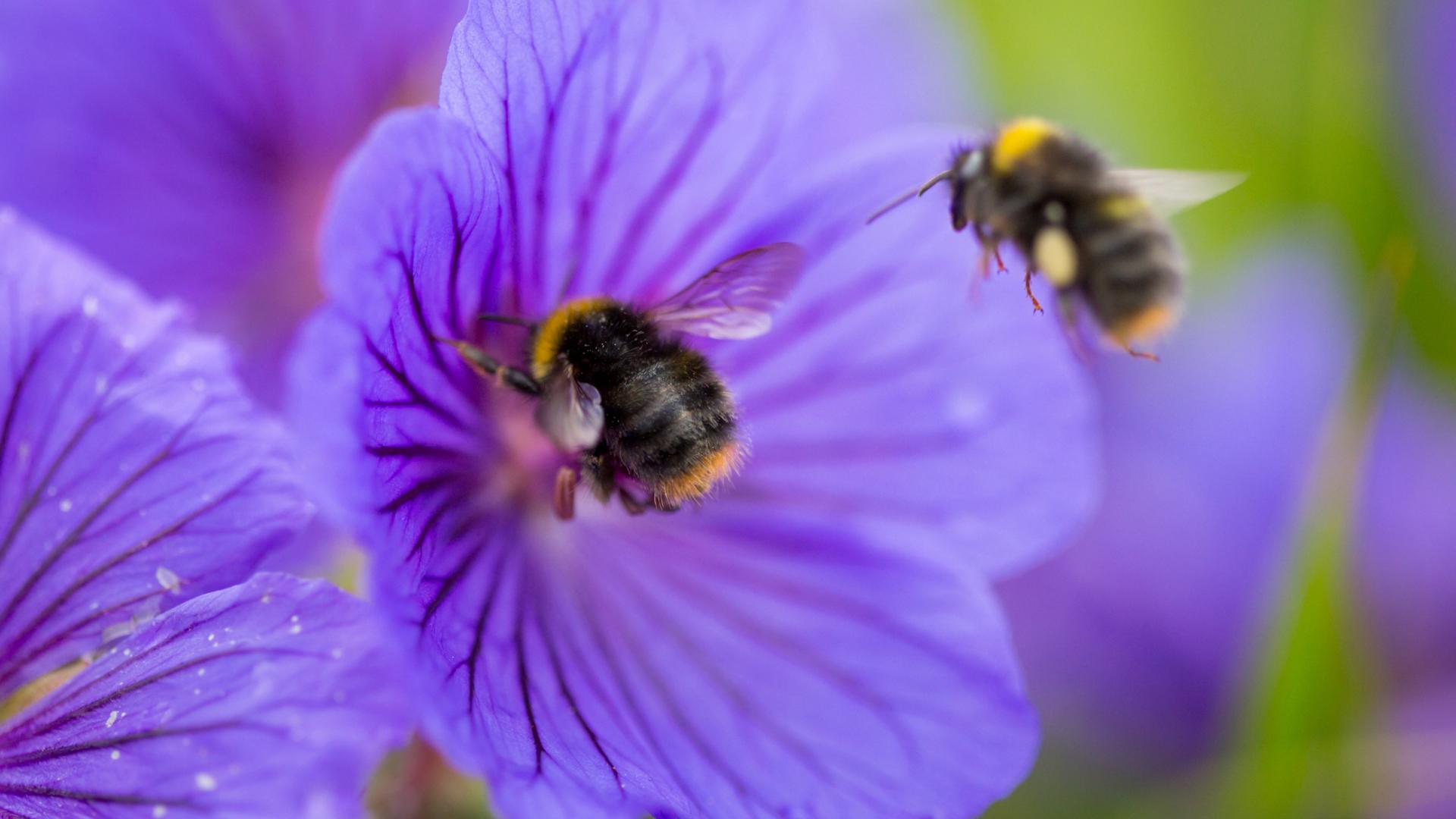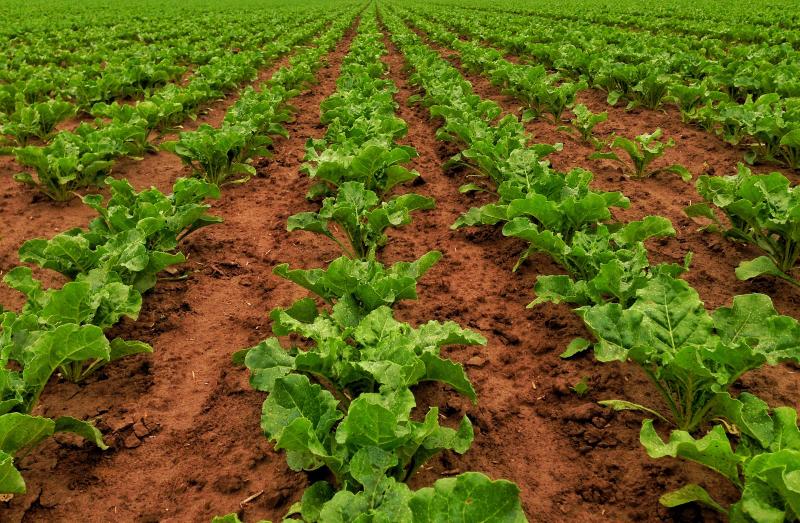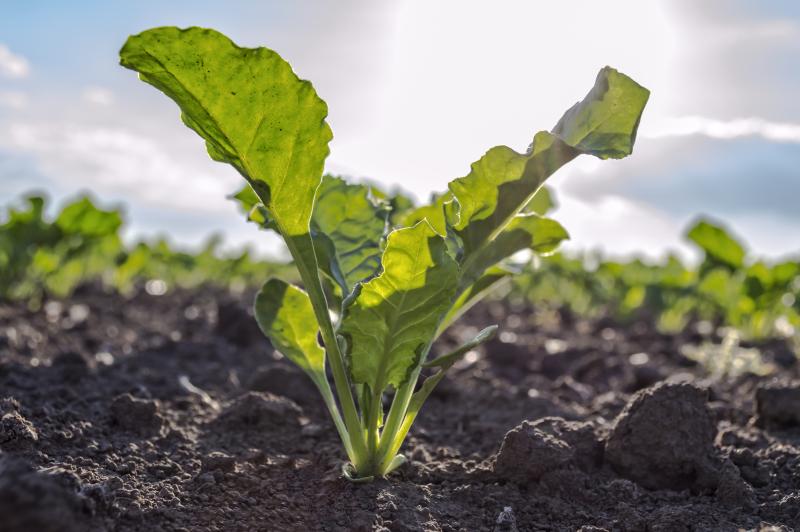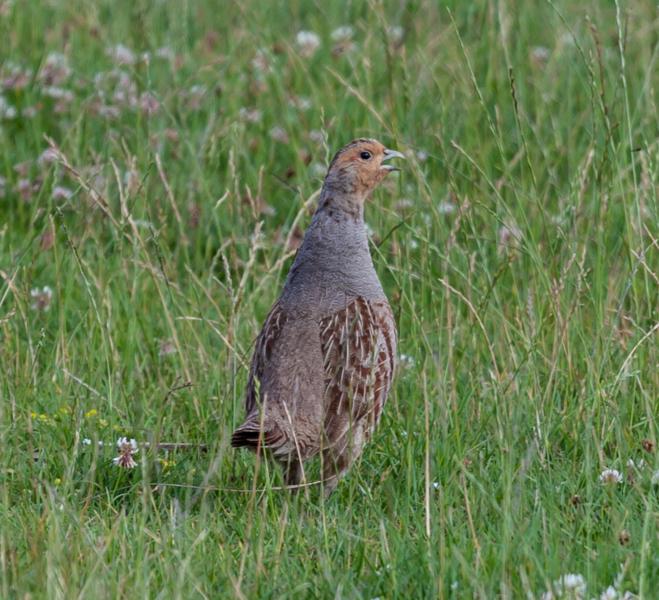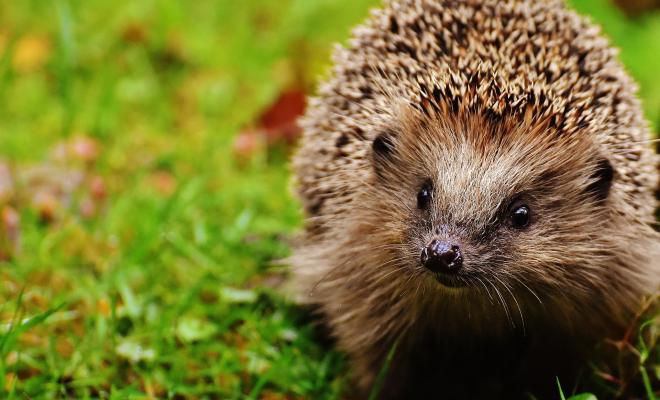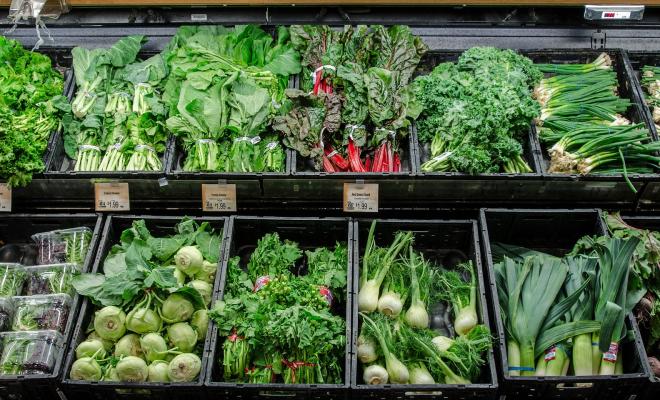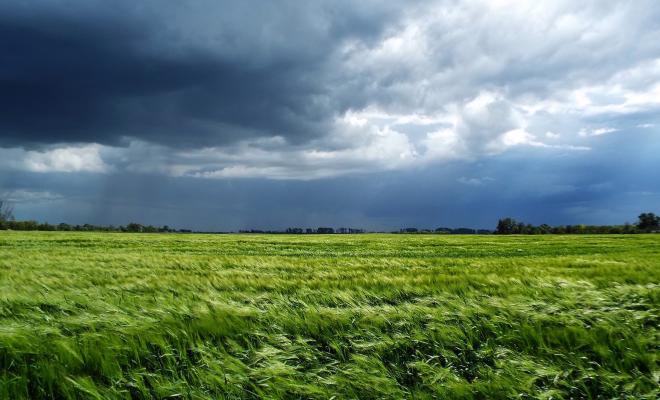Sandra Bell04 Feb 2025
A happier new year for bees
At last the government has put a stop to the yearly rigmarole of the pesticides lobby applying to use bee-harming pesticides for spurious 'emergency' reasons. The decision ends the industry's 4-year streak in undermining the supposed ban on three neonicotinoids.
These chemicals (also known as neonics) are banned in the European Union and the UK for use on all outdoor crops, because of the high risk to bees and other pollinators. This ban was based on a thorough scientific assessment of the evidence and was backed by the UK government. But since the ban, the UK government has slipped into a pattern of permitting the temporary use of the neonicotinoid thiamethoxam.
The trend started in January 2021 when it gave temporary approval to use this neonic against the recommendation of its own expert advisers, according to documents requested under Freedom of Information (FOI) by Friends of the Earth. The pattern continued in 2022, 2023 and 2024 and is linked to the pesticides lobby's deliberate plan to get round the original ban.
Pesticides firms and their backers in the intensive farming industry always opposed the ban. They even claimed that it would result in wide crop failures, large drops in farmers' incomes and extensive job losses. None of which has happened as a result of a lack of neonics.
Now the government must go further and close this blatant loophole once and for all. Ministers must overhaul the currently weak national plan for reducing pesticides on our fields and come up with a new credible strategy to cut their use and harmful impacts. Any plan must support farmers to grow their produce in a way that works with - not against - nature.
Read on for the story about how the ban on neonics was undermined year on year.
Not following the science
Official papers, obtained under FOI rules, show that the Health and Safety Executive (HSE) advised the government not to grant "emergency authorisation" for sugar beet farmers to use thiamethoxam. The HSE raised several concerns about the proposed temporary use, including the impact on bees visiting flowering crops planted after the treated sugar beet. The HSE concluded that the application "does not demonstrate a safe use in the scientific risk assessment" and that "on that basis the HSE recommendation is to refuse the use".
In 2018 the UK government refused a similar application for emergency authorisation for use of neonicotinoids on sugar beet due to the environmental risk. At that time it followed the expert advice it had been given.
Scientific evidence of harm has grown since then, as the Chief Scientific Advisor (CSA) and the Expert Committee on Pesticides (ECP) pointed out in advice given to ministers in December 2020. The ECP also indicated that it wouldn't be possible to mitigate for risk from using this product. Yet in 2021 the government still gave the go-ahead for its use, with a series of mitigation measures.
The government consistently says that it follows the science on pesticides, but in this case it didn't.
Saved by the weather... for now
The 2021 emergency authorisation was subject to a threshold for the level of crop damage predicted from virus yellows infection – which is carried by aphids – and determined by modelling carried out by Rothamsted Research. If the threshold wasn't met, the seeds wouldn't be treated. Luckily for the bees, a spell of cold weather had a significant impact on the overwintering aphid populations and resulted in the virus yellows prediction for the 2021 sugar beet crop being very low.
That turned out to be a short reprieve, because the government had already indicated that it would consider authorising the use of this neonicotinoid on sugar beet in future years. And that's what happened, due to the pesticide lobby’s declared plan to undermine the ban.
Too much secrecy, not enough scrutiny
Friends of the Earth and our allies asked to see all the evidence behind the decision as soon as it was made. But we only received the information in March 2021, 2 months after requesting this under FOI rules. The HSE took double the normal amount of time to respond to our FOI request. Such secrecy and delays in releasing information make it hard for stakeholders and independent scientists to scrutinise or challenge decisions before it's too late.
There's been some speculation that this decision differed from the 2018 decision because the UK had since left the EU. Actually the same decision could have been made under EU regulations, but now the UK is outside the EU these decisions will have less independent scrutiny, so perhaps such a controversial decision is easier for ministers to make.
Below I explain some of the more worrying aspects of this decision and why we must have earlier access to the evidence when similar applications are submitted in the future.
Banned for a good reason
Three neonicotinoid insecticides were banned in 2013 for a good reason. Independent scientific evidence shows that these chemicals harm bees and other pollinators. Applied as seed treatments, they’re taken up by the whole plant so that bees get a dose of neonicotinoids when they feed on flowering crops. The ban was extended to non-flowering crops like wheat and sugar beet in 2018, following a comprehensive review of the scientific evidence. This concluded that these chemicals contaminate the soil, so that crops grown in the same field and wildflowers grown nearby can take up the chemical. Bees can even get a harmful dose by drinking from sap droplets on a plant. Neonicotinoids also contaminate water, and consumption of treated seeds poses a risk to birds.
All of these risks were referred to by the government's expert advisors in their advice on the application for emergency authorisation. The evidence against these chemicals is clear. They should have no place in our countryside – even for temporary use.
Why this decision must not be repeated
Risks to bees and other wildlife – even from temporary use
In 2018 the application for emergency authorisation for neonicotinoids was rejected on the grounds that the risks to bees and the wider environment were too great, including:
- Risk to bees from residues in soils taken up in subsequent crops and wildflowers.
- Risks to birds and mammals eating seedlings and birds eating treated seeds.
- The potential for concentrations of neonicotinoids in surface waters to be at levels that could harm populations of aquatic insects.
The same risks were identified in the 2021 application. For example, in December 2020 the HSE advised that "the risk from following crops has not been shown to be acceptable" and pointed to risks both in terms of pollen and nectar from flowering crops and guttation (drinking sap) from maize crops.
The HSE also warned that surface water could fail Predicted No-Effect Concentration (PNEC) levels and that there was some risk to birds from eating treated seed, although this was an unlikely route of exposure.
Growing evidence of harm
In their advice on the 2021 application, the CSA and ECP both pointed to the increasing evidence of harm from these chemicals.
In September 2020 the ECP noted that “the scientific evidence for harmful environmental effects had grown”. It repeated its warning in November, advising that published literature indicates potentially significant risks to a range of wildlife that includes, but isn't restricted to, pollinators and that it "was not possible to identify how the key risk associated with the use of this product could be further mitigated”.
In December 2020 the CSA said that “environmental damage of neonicotinoid use is clear and the evidence is increasing. Keeping neonicotinoid use to an absolute minimum will continue to be critical to support population recovery of bees and other species”.
Despite these warnings from its own advisors, the government decided that the risks would be managed by mitigation measures.
What about wild bees?
Evidence increasingly shows that solitary and bumblebee species are harmed by neonicotinoids, but the assessment for the 2021 emergency authorisation only considered the potential impact on honey bees. Any assessment of future applications for emergency authorisation for neonicotinoids must consider the impact on our wild bees and not just managed honey bees.
Why are the mitigation measures flawed?
Destroying flowering weeds
The 2018 ban that was backed by the UK government and the refusal of an emergency application in 2018 both pointed to the risk from neonicotinoids being taken up by wildflowers. In the 2021 authorisation, the Department for Environment, Food and Rural Affairs (Defra) said: “The applicant recognised that risks could be posed to bees from flowering weeds in and around the crop and proposed to address this with the use of industry-recommended herbicide programmes to minimise the number of flowering weeds in treated sugar beet crops.”
It seems perverse that a measure meant to protect bees would involve removing flowers and using more chemicals. In fact, the HSE noted that “we would not usually use weed control as mitigation to protect pollinators from flowering weeds (because the loss of food can cause more harm than the pesticide and because not all farmers successfully control weeds)" but still went on to conclude that "in the case of this emergency application it can be considered that the weed control for sugar beet will reduce the risk to pollinators from exposure via flowering weeds”.
It’s certainly an indication of just how toxic and persistent these chemicals are that such a measure is deemed necessary by the government to allow their temporary use.
Risk from wildflower margins
However, wildflowers in margins around the edge of the field wouldn't have been subject to this control. Evidence shows that bees can be exposed to harmful levels of neonics via wildflower margins. Although it would be even more perverse to wipe out wildflowers planted to help pollinators, it's a concern that this route of exposure – clearly indicated as a risk to bees by The European Food Safety Authority in 2018 – wasn't covered by any mitigation measure.
Avoid planting flowering crops for over 2 years after treated sugar beet
The risk to bees from succeeding flowering crops in soil containing neonicotinoid residues is one of the reasons for the neonic ban being extended to sugar beet (a non-flowering crop), and this specific issue was also flagged in the 2018 emergency authorisation decision for future applications to address.
The Defra statement for 2021 said that, to address this, conditions applied to the authorisation included “no flowering crops are planted as following crops for a period of at least 22 months, with an extended period of exclusion for oilseed rape (of 32 months), to minimise the risk to bees”. Again, it’s an indication of just how toxic these chemicals are that such a long period of time is needed before a flowering crop can be grown.
However, according to the government's advisors, even this isn'tt enough. The HSE warned that there could be impacts on bees after 22 months or longer. Even with the 32 month gap imposed for oilseed rape, risks to bees can't be ruled out. The HSE stated in its advice that it "has not been possible to quantify how long it would take for the levels to drop to below the point where there would be adverse effects on honey bee colonies". Papers seen by Friends of the Earth indicate that the risk of exposure at sub-lethal levels even after this long delay could effect honey bees' ability to find their way back to the hive.
Defra failed to address the risk from maize being grown after the sugar beet due to bees drinking sap water. This was specifically raised as a concern by the HSE but wasn't covered by any mitigation measure.
Reducing the rate of application
Defra’s statement said that there'd be a reduced application rate for the seed treatment, but would this be enough to avoid harm to aquatic invertebrates? Neonicotinoids used at normal rates on sugar beet in 2016 caused the River Waveney to be chronically and acutely polluted with thiamethoxam. Yet in the 2021 authorisation, Defra stated that the risks to aquatic invertebrates were “considered to be acceptable”.
The HSE warned that there'd be impacts from surface water contamination. But no other mitigation measures were imposed to reduce the risk of water pollution.
Bending the rules?
Demonstrating need is a key requirement for authorisation of emergency use, including that there aren't alternative ways to control the pest or disease. The Defra statement for the 2021 decision stated: “This protection cannot be provided by any other reasonable means.”
Defra stated that the "applicant outlined a plan for developing alternative, sustainable approaches to protect crops without the use of neonicotinoid seed treatments. This includes the development of resistant plant varieties, measures to improve seed germination and new practices for growers. The plan is already being delivered.”
The use of natural predators can be an effective way to control aphids. In its comments on this application, the HSE noted that ladybird numbers had been low in 2020 and that there are challenges in encouraging consistent natural predators.
A broader question is whether the industry is putting enough effort into helping growers use non-chemical methods. Farming with nature requires a more holistic approach than reaching for a spray or treated seed. Natural predators need habitat on the farm. Farmers will need the right kind of advice and support to move away from insecticides. The market is highly concentrated, with British Sugar buying all UK sugar, so it has considerable influence over how crops are grown, making its advice to farmers on alternatives crucial.
Applicants must also demonstrate that the use will be controlled. The use of the virus forecasting model to determine whether treatment is needed was one way in which the applicants sought to control use in this case. Forecasting can be an effective way to reduce the need to apply authorised pesticides, as evidenced by the treatment not going ahead in 2021.
However, concerns were raised by the HSE that the model wasn't refined enough to allow for variations in virus threat across the growing area: "if the entire crop receives this prophylactic seed treatment, it may transpire that for some growers the seed treatment was not required."
Has this happened because we’ve left the EU?
The decision to grant emergency authorisation hasn't necessarily been facilitated by the UK’s departure from the EU. Emergency authorisations have also been a problem across the EU. That's down to several factors – from the failure of an industrial farming sector set in its ways and used to large public subsidies for adopting methods that require reduced use of pesticides, to governments failing to stand up to the influence of the pesticides lobby.
Three years of "emergency" applications?
UK guidance on emergency authorisations states that it "would not generally be expected that there will be requests for emergency authorisations that have been previously granted to be renewed”. Shockingly, Defra said it anticipated granting future emergency authorisations, stating that the "plan anticipates that applications for emergency authorisations for neonicotinoid seed treatments may be needed for three years (2021 to 2023)”. That'll have pleased the pesticides lobby and National Farmers' Union (NFU), which had made clear their determination to make rolling applications to use the neonic.
The government’s advisers on the ECP noted in September 2020 that “the industry’s strategy to move away from their reliance on emergency authorisations was not clear”. By suggesting that it'll consider granting repeated “emergency” uses, the government is sending a perverse signal. This is no incentive for the industry to move away from these toxic chemicals.
Is there any case for using banned pesticides?
The NFU and British Sugar applied for the 2021 emergency authorisation of neonicotinoid-treated seed by claiming that sugar beet yields in the East of England would be threatened if farmers couldn’t use these pesticides.
The NFU claimed that in 2020 “some farmers” experienced yield reductions of “up to 80%” due to the beet yellows virus being spread by aphids. However, in October 2020 the farming press reported a more positive picture. According to Farmers Weekly: “Early yields from the sugar beet harvest are higher than expected after a tricky growing season hit by a spring drought and aphid-spread virus yellows disease.” In February 2021 modelling showed that cold weather had slowed the build up of aphids and that the threat to the crop no longer warranted the use of thiamethoxam in 2021.
It’s worth remembering the NFU’s similar claims of nation-wide crop failures due to the ban on using neonic-treated seeds for oilseed rape. Oilseed rape yields have fluctuated since the 2013 ban, but there’s no clear trend of decline. In fact, there have been some bumper harvests since the ban as well as some poor ones. Hill Farm, which has worked hard to adopt nature-friendly farming techniques and reduce all insecticide use, reported its best crop for 5 years in 2020.
The wrong direction for farming
The decision to allow a harmful pesticide to be used, albeit on a temporary basis, is symptomatic of a wider failure to invest in the support farmers need to reduce reliance on chemicals and pursue nature-friendly farming practices. It’s widely recognised that healthy functioning ecosystems are essential to food production and that future food production could be undermined by damage to biodiversity.
As well as caving in to the pesticides lobby, the government also has a weak plan for reducing the use of pesticides in general. The National Action Plan for the Sustainable Use of Pesticides does commit to setting targets to reduce the harm from pesticides, but the plan is weak on how it'll support farmers to adopt non-chemical farming practices. The government must scrap this weak plan and make the new one fit for purpose, starting with ambitious targets that cut the use and impacts of pesticides and help farmers get off the chemical treadmill.
What's Friends of the Earth doing?
We consider the lack of transparency in this process to be unacceptable for a decision that has considerable public interest and high stakes in terms of environmental damage. Sadly we’re not surprised. Friends of the Earth has regularly had to use FOI legislation to force the government to publish information about neonicotinoids that should rightly be in the public domain. The lack of transparency in this process means that stakeholders, including independent scientists and civil society, are unable to scrutinise the decision.
We’re also calling for a strong National Action Plan for the Sustainable Use of Pesticides that includes ambitious targets to reduce the use and impacts of pesticides, a commitment not to bring banned bee-harming chemicals back into use, and much better support to help farmers adopt nature-friendly methods of farming.


